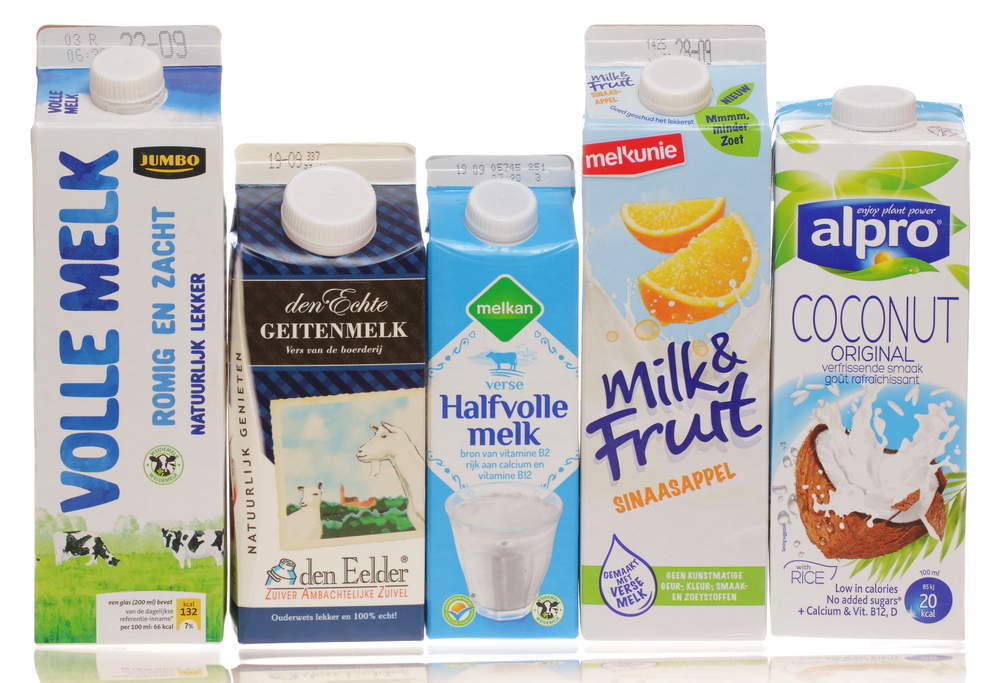
Plant-based foods sold under names related to dairy products such as milk, butter and cheese are no longer allowed in the European Union (EU) marketplace, the European Court of Justice (ECJ) has ruled.
The ECJ judgement was made during a case brought by a German court involving a German food company called TofuTown.
The company sells plant-based products including “Soyatoo Tofu Butter” and “Veggie Cheese”.
TofuTown insisted that it did not mislead its consumers, because the packaging makes clear that the products are dairy-free.
The German consumer protection group VSW, responsible for combating unfair competition in the market, said that TofuTown’s product names broke EU law.
Foods such as milk, butter, cheese cream and yogurt can only be used in the names of products if they contain dairy, according to EU regulations introduced in December 2013.
How well do you really know your competitors?
Access the most comprehensive Company Profiles on the market, powered by GlobalData. Save hours of research. Gain competitive edge.

Thank you!
Your download email will arrive shortly
Not ready to buy yet? Download a free sample
We are confident about the unique quality of our Company Profiles. However, we want you to make the most beneficial decision for your business, so we offer a free sample that you can download by submitting the below form
By GlobalDataSoya and tofu-based products must comply with the legislation.
However, there are some exceptions including coconut milk, peanut butter, almond milk and ice cream.
TofuTown said that its advertising did not contravene EU legislation and so the court asked the ECJ to intervene.
The ECJ ruled that the designations like milk and cheese could not be legally used for purely plant-based products:
The addition of descriptive or clarifying additions indicating the plant origin of the product concerned, such as those used by TofuTown, has no influence on that prohibition.
It is up to national courts to enforce EU laws and so the case will return to the court in Trier in southwest Germany, where it was first heard.
Katie Vickery, a partner with law firm Osborne Clarke told the BBC.
What’s interesting is that the court here has interpreted the law very strictly. There has been a lot of growth in the sale of these kinds of products in recent years. There’s a consensus that customers obviously understand what they are buying — and firms may have thought they could get away with it. This ruling suggests otherwise.
Alexander Anton, secretary general of the European Dairy Association, the voice of the milk processing industry in the EU, said the announcement was “a good day for dairy, a good day for European citizens and a good day for Europe”.
The unique and natural blend of micro and macronutrients of milk and dairy products cannot be matched by any plant-based products. Today’s ECJ ruling protects European consumers: dairy terms like ‘milk,’ ‘butter,’ ‘whey,’ ‘cheese’ or ‘yoghurt’ cannot be used by vegatable ersatz-products. Even while explaining the difference on the packaging, the makers of such plant-based products are not allowed to misuse our dairy terms for marketing their products.
However, not everyone applauded the ruling.
Those critical of the ECJ’s decision said that plant-based products should be able to market themselves in ways that resemble dairy-based products.
“Today’s verdict by the ECJ has little to do with consumer protection,” said a spokesman for the European Vegetarian Union, a non-governmental umbrella organisation for vegetarian societies and groups in Europe.
“Plant-based alternatives to milk products have been on the market for many years. As many of them have been developed and produced specifically to resemble the originals, they should be allowed to be marketed under similar sales denominations,” he added.
The Vegan Society also criticised the EU court’s judgment, arguing that consumers know when they are buying plant-based products and don’t require further clarification.
“The Court’s ruling follows concerns over customer confusion – but realistically speaking, how likely is it that someone buys a carton of soya milk and thinks it’s dairy milk?” a Vegan Society spokesman told Verdict.
The Humane Society, the largest animal protection organisation in the US told Verdict that the ruling demanding that companies re-brand their tofu and soya products could deter people from buying plant-based foods.
Alexandra Clark, the Humane Society Europe’s sustainable food campaigner, said:
With their environmental and health commitments the EU should be promoting plant-based products, not censoring them. The court cites “customer confusion” as its reason for the ruling but in doing so fails to realise that the rising demand for plant-based milks and cheeses is not due to the public being misled but because people are increasingly aware that plant-based products are better for the environment, their health, and animals.
Worldwide sales of non-dairy milk alternatives more than doubled between 2009 and 2015 to $21bn, according to Euromonitor, the consumer goods research group.



